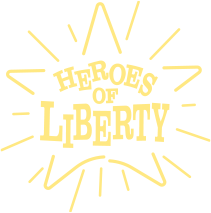In April 2021, a group of concerned parents met with a Williamson County School Board member in Franklin, Tennessee. There, they were told that Critical Race Theory was not being taught in their schools. Yet according to parents at the meeting, that simply wasn’t the case.
One mother told the assembled group that she had been forced to put her seven-year-old daughter in therapy after she had come home from school one day and said: “I’m ashamed that I’m white.” The daughter then asked “Is there something wrong with me? Why am I hated so much?”
“She is depressed. She doesn’t want to go to school,” the mother said, adding: “She is scared to death and has even had thoughts of killing herself. Again, we are talking about a seven-year-old child.”
With more stories like this emerging across America, parents and representatives are starting to take a stand. At the time of writing, seven states have banned Critical Race Theory in their schools, and a further 16 are considering bans.

States that have banned Critical Race Theory. Source: World Population Review
So why were parents told that Critical Race Theory isn’t being taught? To answer that, let’s take a look at what Critical Race Theory is, how it is taught in schools, and why parents have a right to be concerned.
Critical Race Theory – a definition
Critical Race Theory (CRT) is an intellectual theory which holds that American society (including economic, political and social structures) is systematically racist, and was purposefully created by white people for white people, to keep everyone else powerless.
Critical Race activists see it as their duty to criticize (hence ‘critical’) American society, with the goal of changing it. As one of the founders of Critical Race Theory, Richard Delgado, explained, this means criticizing the foundations upon which America is built “including equality theory [i.e racial equality], legal reasoning, Enlightenment rationalism, and neutral principles of constitutional law.”
For this reason, Critical Race Theory is opposed to the Civil Rights Movement of the 1950s and ‘60s in which black Americans fought for and won equal rights. Critical Rights activists don’t want America to realize the vision laid out by Jefferson when he wrote: “We hold these truths to be self evident, that all men are created equal, that they are endowed by their Creator with certain unalienable Rights, that among these are Life, Liberty and the pursuit of Happiness.” Instead, they want a revolution to overturn the American way of life, to replace truth with power.
How is Critical Race Theory taught in schools?
The ideas found within Critical Race Theory are taught from Kindergarten all the way up to 12th Grade – and on into college. The way it is taught will depend on what grade is being taught, and in which class.
The most obvious examples of Critical Race Theory in the classroom come in American history classes. Instead of being taught that America was founded by people who believed in equality and strove to create a country in which everyone could be free, students are taught that white people exploited black people and built a country for the benefit of white people only.
One of the ways schools teach this is through the 1619 Project, which rewrites American history by marking the founding of America not with the Declaration of Independence in 1776, but with the landing of the first African slaves in Virginia, in 1619. The project was launched with an essay published in New York Times Magazine, in which the author claimed that the colonists declared independence from Britain “to protect the institution of slavery,” and that therefore “this nation was founded not as a democracy but as a slavocracy.” In this way, the whole history of America is re-framed to be the history of slavery in America.

However, Critical Race Theory isn’t confined to history class. It sneaks into all sorts of classes, from English literature to civics, and even science and math. At all ages, white children are taught that they have inherent privilege and should give up that privilege to non-whites, while all other children are taught that they are the powerless victims of an unfair system.
Why do some people deny Critical Race Theory is being taught in schools?
Some people involved in education have claimed that Critical Race Theory merely teaches children about history, and have accused concerned parents and lawmakers of trying to censor teachers.
For example, during a conference in July last year, Randi Weingarten, the head of the American Federation of Teachers (AFT) accused Republicans of “bullying teachers and trying to stop us from teaching students accurate history.” Yet clearly it is not ‘accurate history’ to claim that the founders of America were determined to break away from Britain so that they could create a systematically white-supremacist nation.
Others have claimed that bans on Critical Race Theory in schools will prevent teachers from teaching about African American history. Again, this is not the case. Students in states where Critical Race Theory is banned are still taught about slavery and the abolition movement, about Jim Crow, and about the Civil Rights movement.
And yet others have used word games to deny that Critical Race Theory is being taught in classrooms. For example, Loudoun County Public Schools board chair Brenda Sheridan told NBC’s Meet the Press: “It’s not in our curriculum, because it would be inappropriate. … It is a graduate-level theory, and it would be inappropriate if a fifth-grader was doing that.”
Yet no-one is claiming that the academic theory of Critical Race is being taught to children. The concern is over the teaching of harmful ideas which promote racism and discrimination.
Writing in the Washington Examiner, former teacher Kevin Roberts spoke for teachers and parents across the nation when he commented: “I spent many years in the classroom, with a roomful of students looking to me for knowledge, instruction and guidance. I can’t imagine looking back into their eyes and telling them that they’re irredeemably bad, that their nation is built on a lie, and that some of them are worth more than others—depending on the color of their skin.”
What Can Parents do?
Our children deserve to grow up in an America that is not divided by race. White children shouldn’t be made to feel guilty just because of the color of their skin, and non-white children deserve to know that they are not doomed to be victims, but can make something of their lives.
Although it feels like a David and Goliath battle, it’s important to remember that the most important place in a child’s life is not school, but home. As a parent you can make all the difference in the world to your children, simply by making sure your children learn about the classic American values that are ours by constitutional right.
A great way to do this is with books from Heroes of Liberty. Each one tells the story of someone who, in their own lives, embodied the values that built this nation: love of freedom, a belief in true equality, the courage to pursue dreams, and the fortitude to see them realized. As children learn by example, giving them a bookshelf full of outstanding role models is the perfect way to protect them against damaging ideas.
Some parents might also want to get more active politically, by standing up to the school boards who allow Critical Race Theory to be taught. There are a number of great resources on the internet for those who do, for example, Heritage Action recommends filing Freedom of Information Act requests to hold lawmakers to account, and gives details on how to do that, while Citizens Renewing America has put together a detailed pdf pamphlet on Critical Race Theory and how to resist it. Or why not join your local chapter of Moms for Liberty to meet like-minded parents and get involved?
Whatever you choose to do, whether by introducing American values into story-time at home or by getting out and protesting, you can rest assured that you are doing your best to protect your child.
If you found this post useful, please share so that others can benefit too.






